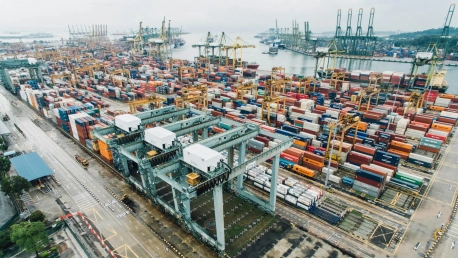In the rapidly advancing world of maritime technology, the integration of internet-connected systems and digital platforms has significantly enhanced operational efficiency for commercial vessels and port facilities. However, this progress also comes with heightened cybersecurity risks, including ransomware attacks, unauthorized access to crucial systems, espionage in supply chain operations, and theft of sensitive trade secrets. In a sector where security breaches could have dire consequences, it is imperative for maritime entities to promptly report cyber incidents. Timely sharing of information with authorities can not only help mitigate the impact of individual breaches but also strengthen the entire maritime sector’s cyber defenses and prevent future attacks.
Details to Share
When reporting a cyber incident, the information shared must be comprehensive to be effective. Detailed data about the event should be included, such as the exact date and time of the incident, the specific location where it occurred, the nature of the activity involved, and a thorough description of the events as they unfolded. Providing a clear, detailed account can aid authorities and cybersecurity experts in understanding the scope of the incident and developing strategies to counter similar threats in the future. This information is crucial not only for immediate response actions but also for long-term trend analysis and risk management.Accurately documenting the timeline and specifics of the incident helps in piecing together the chain of events, which is vital for identifying the attackers’ methods and potential vulnerabilities within the system. Detailed reporting enables the creation of more robust cybersecurity protocols and better preparedness for future incidents. Furthermore, such comprehensive documentation ensures that any subsequent investigations by authorities can proceed smoothly and efficiently, aiding in the quick resolution and mitigation of cybersecurity threats.
Types of Activities to Report
Various types of cybersecurity incidents should be promptly reported to ensure appropriate measures can be taken. Unauthorized access to systems is one of the most critical activities to report. This includes any instance where an individual gains access to the system without proper authorization, potentially leading to data breaches or manipulation of crucial operational controls. Equally vital is reporting Denial of Service (DOS) attacks that last more than 12 hours, which can significantly disrupt maritime operations.In the battle against cyber threats, the presence of malicious software within the system must also be reported, including specifying the type of malicious software if known. Clearly identifying and documenting targeted and repeated scans against the company’s IT service systems and repeated attempts to gain unauthorized access are essential. Such activities indicate persistent efforts by cybercriminals to exploit system vulnerabilities. Additionally, phishing attempts via email, mobile, or social media should be logged and reported as these can serve as entry points for more severe cyber attacks. Incidents involving navigation systems related to SATCOM, AIS, and GNSS interference should also be reported, given their potential to disrupt maritime navigation and safety.
How to Report
In the swiftly evolving landscape of maritime technology, the incorporation of internet-connected systems and digital platforms has greatly boosted the operational effectiveness of commercial vessels and port facilities. Nonetheless, this technological progress also brings with it increased cybersecurity vulnerabilities, including ransomware threats, unauthorized access to vital systems, espionage in supply chain operations, and the theft of sensitive trade secrets. In an industry where security breaches can have severe and wide-reaching consequences, it is crucial for maritime organizations to report cyber incidents promptly. Immediate communication of these incidents to relevant authorities not only helps to contain and lessen the impact of individual breaches but also fortifies the overall cybersecurity posture of the maritime sector. By sharing these details quickly and efficiently, the maritime industry can bolster its defenses, better safeguard against future attacks, and develop a more robust, collective response to cybersecurity threats.









